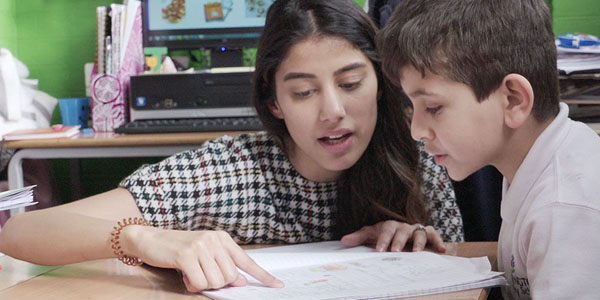National Tutoring Programme simplified to reach as many pupils as possible

Children and young people will benefit from more tutoring through their school from next year, with all funding going direct to schools to simplify the National Tutoring Programme and reach as many pupils as possible, the government has announced.
In plans announced by the government all £349 million of tutoring funding for the academic year 2022-2023 will go directly to schools. This will simplify the system and give schools the freedom to decide how best to provide tutoring for their children, which could include one on one or small group tutoring through teachers or teaching assistants, or continuing to work with external tutoring specialists and academic mentors.
The new model follows feedback directly from schools and will embed tutoring into children’s education where they need extra support to progress.

Newly published estimates show an estimated 887,521 courses have started so far this academic year – with 674,941 through the school-led route and 1,198,239 in total since the programme began – as the government says it remains on track to deliver the ambitious target of up to six million courses by 2024.
The announcement follows the launch of the Schools White Paper which pledged that any child who falls behind in maths or English will get the evidence-based support they need to reach their potential – including through tutoring.
Education Secretary, Nadhim Zahawi, said: “The National Tutoring Programme is transforming the way schools provide support for the children and young people who need it most, with 1.2 million courses now started across the country since the programme began.
“It’s also pivotal to the pledge I made to every parent as part of my Schools White Paper, that if their child falls behind in English and maths, that child will receive the high-quality support they need to get back on track.
“It’s teachers and schools that know their pupils best, which is why we are building on the success of school-led tutoring so far – with evidence as our watchword – so that as many children and young people as possible can feel the huge benefits high quality tutoring provides.”

As a result of the changes to the programme, the Department for Education will launch a procurement process in April for a potential new supplier(s). The supplier will be responsible for quality assurance, recruiting and deploying academic mentors and offering training, which will support schools to make best use of their funding.
Schools that are currently working with tuition partners will be able to continue to do so in the next academic year. Similarly, eligible schools can continue to employ academic mentors who are on their staff this year, and will also still be able to recruit academic mentors directly.
Commenting as the government announce that Randstad will not have the National Tutoring Programme (NTP) contract next year, and that schools will receive tuition funding directly next year, Nick Brook, deputy general secretary of school leaders’ union NAHT, said: “It is unquestionably the right decision to direct tutor funding directly to schools from next year. The success of the school-led route shows that the appetite for tutoring is there. Likewise, it is right to refocus the National Tutoring Programme on growing the supply of high-quality tutors everywhere, particularly in areas of the country currently poorly served.
“To succeed, this needs to be led by schools, not done-to schools; it needs to be for pupils, not for profit; it needs to be seen to be part-and-parcel of schools’ work to narrow the achievement gap, instead of a sticking plaster for COVID recovery.
“Schools will start setting budgets and shaping pupil premium strategies for 22-23 over coming weeks. If the opportunity is to be seized then schools will need to know sooner rather than later how much tutor funding will be coming their way, and the top-up required.”

So far, this academic year, an estimated total of 83,805 courses have now started as a result of schools employing academic mentors, whilst 128,776 courses have started through schools working with a tuition partner. Evidence suggests that small group tuition can boost progress by an average of two months in secondary schools and four months in primary schools.
Schools will also be given the flexibility to deliver tuition over the summer holidays, as the date to utilise the enhanced School Led Tutoring funding has been extended to the 31 August. This comes as new research published from the department into the successful Summer Schools programme last year highlighted positive feedback from schools in support of delivering relevant provision over the summer period.
Almost 2,800 English schools took part in the Summer Schools programme, with over half of schools (53%) surveyed as part of the research indicating that they believed summer schools were ‘extremely effective’ at improving pupil wellbeing and over two-thirds (68%) indicated they were ‘extremely effective’ for improving transition.
Schools, tuition partners and academic mentors already engaged in the programme will be contacted on the next steps.



